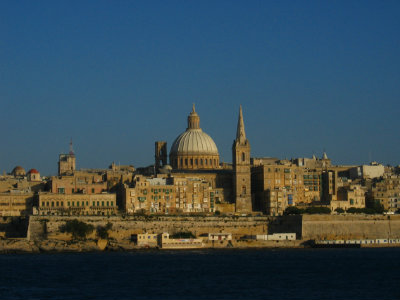With just days to go, Governments agree to civil society push in Brussels
9 novembre 2015

Fixing a glaring omission as requested by civil society leaders from Europe and Africa, EU and African governments have agreed to the participation of two representatives of civil society as observers in the high-level Valletta Summit on Migration expected to convene at least 50 heads of states in both regions 11-12 November in Malta. Organized by the EU, participation in the Summit had originally been reserved only for governments and international organisations.
The invitation to civil society came Friday, only hours after over 100 representatives of African and European civil society organisations, international organisations and EU and Africa institutions convened to discuss expectations in a Valetta Summit Dialogue with civil society, Thursday in Brussels. Taking forward strong recommendations in an African and European Joint Civil Society Statement that regional and international civil society networks prepared for the Summit, the mix of human rights, development, diaspora, refugee and child protection, and academic representatives—many of them migrants themselves—urgently called on the governments to recognize civil society’s place, and value, at the table in Valletta.
“We welcome the invitation, but were surprised that we had to push for it, as civil society is both essential and constructive in all these policy discussions”, says Edouard Rodier, Director of Policy for the Norwegian Refugee Council, who co-organized the civil society Dialogue together with the International Catholic Migration Commission (ICMC) and the MADE (Migration and Development) Civil Society Network-Africa, coordinated by Caritas Senegal.
“Civil society—and quite centrally, migrants and diaspora—are the subject as well as the key partners on the ground in migration”, underscores ICMC Head of Policy John K. Bingham. “There should be no conversation about us without us. Surely we have learned by now that approaches that exclude civil society—from policy-making dialogue and from solutions—are not effective.”
Representing civil society at the Summit—and available for interviews there—will be Ms. Odile Faye, of MADE Africa (led by Caritas-Senegal) and the Association des Femmes Africaines pour la Recherche et le Développement (AFARD), and Ms. Valérie Ceccherini of the Norwegian Refugee Council (NRC).
Organized by the European Council, the Summit seeks increased cooperation with African governments in managing inter-regional migration phenomena around five specific areas: root causes; legal migration channels; protection needs; tackling exploitation and trafficking of migrants; and return. Framed around 9 courses of action, the joint Europe-Africa civil society statement calls upon European and African leaders to deliver an Action Plan that urgently and drastically improves the governance of migration starting from a practical, “needs-first, then rights-based” perspective. Civil society calls upon governments to recognize that, while at times vulnerable and in need of protection or assistance, migrants and refugees are—without exception—human beings with dignity, rights, agency and courage, with skills of all kinds, which are positive for themselves, their families, and the countries to and from which they have migrated.
Aditus Foundation, Integra Foundation and Jesuit Refugee Service (JRS) Malta, in collaboration with the International Catholic Migration Commission (ICMC) and the Migration and Development civil society (MADE) network in Africa will also hold a pre-Summit event on 11 November 2015 at the Old University in Malta where they will express their views and recommendations on issues to be discussed at the Summit and conduct a 30-minute press briefing.